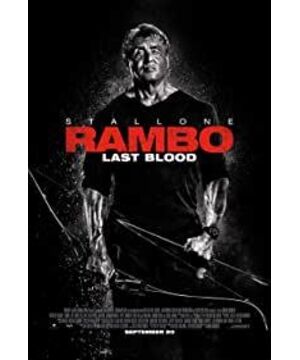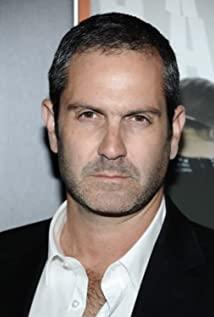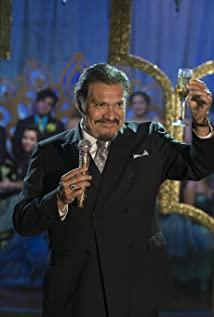Bruce was born in March 1955, Schwarzenegger was born in July 1947, and Stallone was born in July 1946
In the age when technology was not developed as a child, most of us watched movies on DVD. At that time, we were addicted to the heroic qualities of old Hong Kong films. We had learned how to transform into a Japanese special film, and the images from across the ocean made us stunned.
After many years, everything seems to be changing. Hong Kong movies have declined, and the scenery is no longer there. Special photos are no longer followed. The methods and equipment for viewing movies are constantly being updated. The only constant is that the tough guys such as Schwarzenegger, Stallone, and Bruce are still active on the silver screen.
Some time ago, Schwarzenegger's "I won't be back" in "Terminator" made people cry, and Bruce's "Die Hard" series is also expected to return in 2021. Only Stallone's "First Blood 5" missed the domestic screen because the screen was too violent and bloody.
Since the plot of "First Blood 5" is really nothing to say, I won't repeat it here. If you want to understand the plot, just look at the brief summary of the plot.
The essence of war movies is anti-war
If the core of comedy is tragedy, then the essence of war films is anti-war. This sounds like when your parents took away your New Year's Eve money when you were young, and told you: I took your money away to allow you to save more money. When two things that seem to go against each other are put together, is it true or false?
From the Reagan era to the Trump era, the "First Blood" series has always had a deep political metaphor. Especially in the first episode of the US's defeat in the Vietnam War, using Stallone's Rambo, the personal experience of this soldier returning from the Vietnam War, made us feel the grim environment at that time.
Here again, the essence of war films is anti-war. Rambo returned from the battlefield, but he was unwilling to continue fighting. After being forced to have no choice but to resist many times, the resistance ended up crying and accusing the war. Whether this ending is satire or criticism, Rambo represents only the epitome of the times.
With the occurrence of the American invasion of Grenada during the Reagan era, we saw Rambo, who was crying bitterly in the first episode, turn to a tough guy, act decisively, and the scene became bigger. Of course the anti-war factor still exists.
Movies reflect the times. Comparing Die Hard 1 in the same period, we can find that the battle backgrounds of the two films are very similar, one is in the dense jungle and the other is in a closed building. They all reflect the American people's desire to break the prison and escape this environment as if they were living in a closed box, with darkness everywhere in sight.
Coming to "First Blood 5" again, the Mexican refugee tide and Trump's strength on the US-Mexico border wall are fully demonstrated in the film. Rambo's niece did not listen to persuasion to find her biological father and died. Rambo went to rescue her niece and had to cross the US-Mexico border. Rambo bluntly said that the police could not do anything about it.
The treatment of the Mexicans in the film is also quite bloody and violent. The fate of annihilation and the tragic methods take turns in battle, and even heart-wrenching methods appear. Compared with reality, its meaning is self-evident.
However, I have to say that the focus of the filming of "First Blood" has so far changed from a political metaphor to an action scene, and it has become an ordinary commercial film. More people's eyes have shifted from the metaphorical political background to whether the action is not irritating, the scene is not grand, and the special effects are not realistic. Maybe after a tiring day, everyone just wants to enjoy a popcorn movie instead of obscure political metaphors.
But I still hope you will not forget that we are still experiencing "war", but there is no gunpowder in this "war". We may not be on the battlefield in person, but war is closely related to us. Old Rambo still has a fight, but what about us? The film expresses an anti-war attitude through the interpretation of the tragic war. In reality, there is also the argument that the war is launched to end the war. Which is right and wrong? Victory is justice.
The veteran is not dead, but withered
From First Blood to Last Blood, 37 years later, Stallone was 73 years old. When we grew up, Rambo and Stallone are also old. It may be a bit exaggerated to say that this role has changed the trajectory of someone's life, but it is possible to say that it has brought a little impact to someone.
Wolverine stays young forever, but Hugh Jackman will eventually lose his steel claws. Iron Man's steel and iron bones, but Robert Downey Jr. is just a mortal body. Rambo is the king of the jungle, but Stallone is just an action actor. We all know that the hero will eventually come to an end. The ending is not terrible, the terrible thing is that the successor has not appeared.
We watch "Die Hard" and watch Bruce Willis' hair dwindling until it disappears. Watching "Terminator", watching Schwarzenegger's movements become increasingly slow. Watching "First Blood", watching Stallone go from graceful to old-fashioned. Watching them grow old, it seems that our youthful years are also gone with the wind.
Seeing the seventy-year-olds still working hard to burn the light of their lives until the last drop of blood is exhausted, we can only sigh: The veteran is not dead, but is fading away.
View more about Rambo: Last Blood reviews











